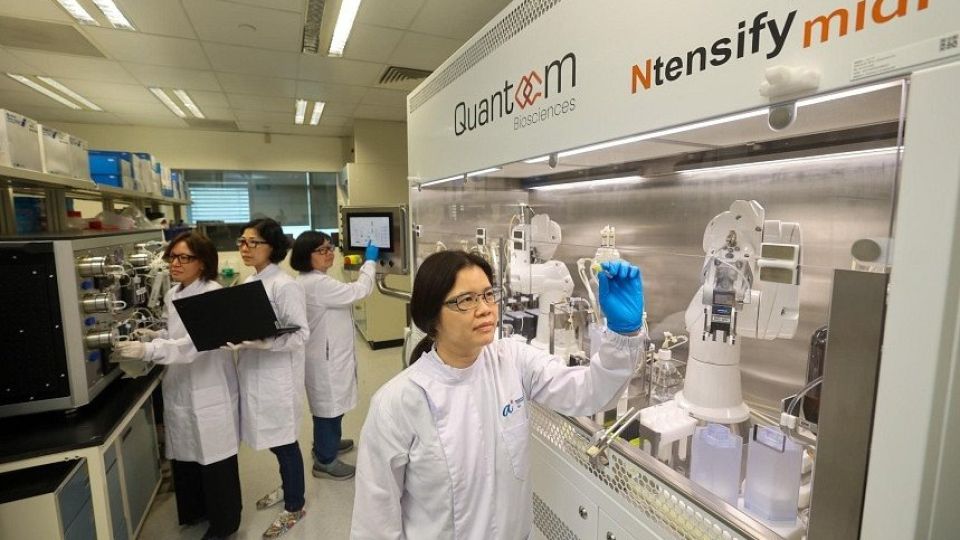November 5, 2024
SINGAPORE – A cutting-edge mRNA production laboratory that can quickly produce materials for pre-clinical or animal studies for vaccines to respond to future pandemics, or drugs to combat cancers and other diseases, was launched officially on Nov 4.
A*Star’s Nucleic Acid Therapeutics Initiative or NATi said this is a first-of-its-kind facility in Asia that is dedicated to mRNA production.
Called the NATi mRNA BioFoundry, the facility paves the way for national pandemic preparedness and nucleic acid therapeutics (NAT) manufacturing, it said.
NAT is an emerging field of medicine that uses nucleic acids such as DNA and RNA to treat a range of diseases, including cancer and viral infections. Covid-19 vaccines based on mRNA technology, which were produced within months of the pandemic, are an example of NAT.
“This marks an important first step towards realising RNA therapies that are not only discovered but also manufactured right here in Singapore, contributing to our ambition of becoming a leading hub for biomedical innovation,” said Second Minister for Trade and Industry Tan See Leng in a Nov 4 press release.
The mRNA facility was repurposed in April 2024, when two highly advanced machines – one to make the RNA and the other to encapsulate it – were brought in to replace the previous machines.
Those earlier machines could be used to make the same products in the traditional manner, but required more steps and more labour.
With the two new machines, the lab can produce up to 5g of purified RNA, which is enough to be made into an estimated 100,000 doses of vaccines a day, said Professor Andre Choo, deputy executive director of A*Star’s Bioprocessing Technology Institute (BTI), a national research institute where the mRNA facility is located.
Previously, the lab would need a month to 1½ months to make this amount, he said.
Prof Choo said the facility has started working on the pre-clinical RNA samples for the development of mRNA vaccines against influenza outbreaks, including the H5N1 bird flu strain.
Researchers can also use the technology platform to make high-quality pre-clinical materials that can be used to test mRNA drugs not just for cancer but also for eye infections, cardiovascular diseases and other illnesses.
The facility is part of the $97 million NATi programme announced by Dr Tan during the parliamentary debate on the Ministry of Trade and Industry’s 2024 budget. It was built in collaboration between NATi, A*Star and Wellcome Leap, a non-profit organisation founded by the UK-based Wellcome Trust to accelerate innovations that benefit global health.
Singapore is part of the global network of the Wellcome Leap R3 (RNA Readiness + Response) Programme, which aims to develop and deploy RNA technologies and innovations.
Dr Koh Boon Tong, executive director of A*Star’s BTI and NATi, said the facility stands out for featuring automated mRNA manufacturing processes, which make it possible to accelerate breakthroughs in research and commercialisation. While there are other mRNA facilities here and elsewhere around the world, most of them have manual manufacturing processes, he said.
Having automated processes allows for prompt scaling of mRNA production, ensuring a steady supply for pre-clinical research and clinical trials.
Dr Koh said the newly launched facility is now focused only on research and producing samples for pre-clinical or animal studies, but it is equipped to scale up swiftly during national health crises, ensuring Singapore’s ability to respond effectively to future emergencies.
“The facility allows us to think about having a local supply of mRNA vaccines, rather than importing it,” he said.
It will help to attract new research opportunities and advance Singapore’s capabilities in healthcare and biomanufacturing, Dr Koh said.


